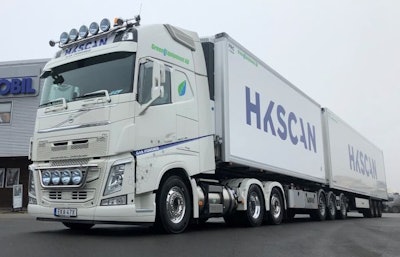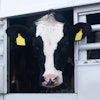
For the April-June quarter, HKScan reports that the company was more able to pass on its rising costs of production than in the previous three-month period. This was despite continued spiraling costs arising from inflation.
In the most recent quarter just ended, net sales amounted to EUR505.7 million (US512.8 million). Compared to the same period of 2021, this equated to an increase of 13%. Furthermore, HKScan reports that all sales channels and categories in all of its home markets registered year-on-year improvements. Food service sales performed particularly well.
However, the group’s headline profitability for the three-month period was hit hard by a EUR15.6-million reduction in goodwill in its Baltic business as a result of an impairment test. As a result, Earnings Before Interest and Taxes (EBIT) for the whole group was declared as a negative figure of EUR14.3 million. For 2021, the figure was EUR3.7 million.
Using comparable figures, however, EBIT improved from EUR700,000 in the second quarter of 2021 to EUR1.5 million for the three months just ended. As well as improving the balance between cost inflation and selling prices. HKScan attributes this to a combination of improved sales mix and production efficiency.
Negative group EBIT for first half-year of 2022
For the six months to the end of June 2022, HKScan’s net sales reached just under EUR943 million. Compared with the EUR877 million in sales for the same period of last year, this is an increase of 8%.
Without adjustments, the group’s EBIT for the period declined by EUR25.8 million to a negative figure of EUR23.2 million. Including adjustments for the write-down in the Baltic businesses’ goodwill, EBIT stands at a negative EUR7.0 million. For the first half of 2021, the figure was a negative EUR500,000.
In order to ensure consistent meat supplies for its business, HKScan reports it raised prices paid to its producers. Toward the end of the period, the group was able to raise its selling prices. This successfully contributed to covering its rising costs, but with a delay. Towards the end of the review period, the company assesses the situation to be gradually reaching a more favorable balance.
For both the second quarter and first-half year, all four of HKScan’s operations — Finland, Sweden, Denmark, and the Baltic countries — recorded year-on-year increases in net sales.
The Finnish and Danish businesses turned in improved profitability (expressed as EBIT) in the second quarter compared with the previous year. Only the profitability of the Baltic region slipped, while the figure for the Swedish operation was unchanged.
For the January-June period, only Denmark improved EBIT year-on-year. While the figure for the Finnish operations was the same as in 2021, the results were below last year’s for Sweden and the Baltics.
HKScan: Outlook for 2022
Despite the ongoing business challenges, HKScan's guidance for 2022 remains unchanged.
Comparable EBIT in 2022 will improve in comparison to 2021, it forecasts. Developments in the global meat and grain markets are expected to impact the Group’s profit for the full year.
Commenting on the reported results, HKScan’s CEO Tero Hemmilä stated that for the next six months, strong cost inflation will continue to create uncertainty, both for farmers and the food industry.
“Active discussion with customers about the situation and the measures required will continue to play an important role also over the rest of the year,” he said. “This will create continuity in the production of domestic meat raw material and food, as well as in the availability of raw material. I am confident that all food chain players understand the seriousness of the situation and are ready to take decisions that will not break the basis for domestic food production but strengthen it in all our home markets.”
This year, the focus of the company’s management will remain of sales pricing and cost control, Hemmilä said. He stressed that HKScan’s strategy remains in place is to become a versatile food company.
More on HKScan
In a year of mixed fortunes for HKScan, the company reported significantly increased costs during its 2021 fiscal year. These negated the higher sales achieved, and reduced profitability compared with the previous year.
With annual slaughterings of around 93 million birds, HKScan is among the top poultry meat companies in Europe. This is according to WATTPoultry.com's Top Poultry Companies survey.
HKScan is among the leading food companies in northern Europe and Russia. HKScan produces, sells and markets pork and beef, poultry products, processed meats and convenience foods under brand names including HK, Scan, Kariniemen in Finland, Rose in Denmark, and the pan-Baltic brands Tallegg and Rakvere. HKScan exports to about 50 countries and employs nearly 7,000 people.
Earlier this month, HKScan announced that it was reducing the workforce at two of its poultry plants in Finland. This decision was made, it said, to improve profitability following statutory negotiations.
















